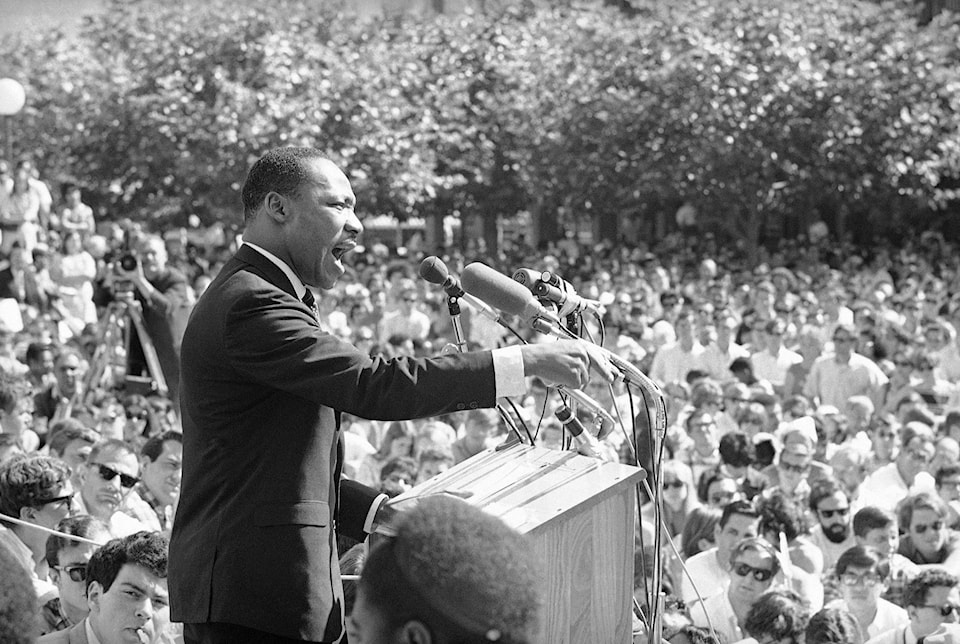At the time of his death, the majority of Americans hated Martin Luther King Jr. and with the date commemorating his life just passing you should reflect on the fact you probably would have too.
Bernice King, King’s daughter, is also well aware of this and has been saying it for years.
In a 2021 tweet, she wrote he was one of the most hated men in America at the time of his assassination and “[m]any who quote him now and evoke him to deter justice today would likely hate, and may already hate, the authentic King.”
King was put on illegal FBI watch lists and received death threats from the government because of his activism in the Civil Rights movement, opposition to the Vietnam War and his famous April 30, 1967, speech at Ebenezer Baptist Church in Atlanta on the subject.
Yet when anti-Zionist protesters fight against the genocide in Palestine and point out that the evils of capitalism are as real as the evils of militarism and racism, they are scoffed at. And when problems of racial injustice and economic injustice are said not to be solved without a radical redistribution of political and economic power by these people, there are calls for their prosecution.
Many Canadians likely also agree that this kind of rhetoric is extremist and may take the reactionary stance of cheering when police brutalize these protesters during marches or occupation movements.
But this message is exactly what King preached at the Southern Christian Leadership Conference a month before his speech against Vietnam.
When BLM protested in ways that some pundits said were not done in the right ways and which caused President Barack Obama to call them thugs one should remember when King said that “freedom is never voluntarily given by the oppressor; it must be demanded by the oppressed.”
When someone says, including President Donald Trump in his inauguration speech, that we should just be race-blind and King dreamt of that being the future, it should be known that the reverend preached against “the myth that capitalism grew and prospered out of the Protestant ethic of hard work and sacrifices.” Stating that capitalism in America was built on exploiting black slaves and thrives on the exploitation of the poor, of all races, both in his home country and abroad.
Most pertinent of his messages is when he quoted in agreement with Dante that “the hottest places in Hell are reserved for those who, in a period of moral crisis, maintain their neutrality.” This can be applied to too many recent events to count.
And what has changed between now and the 1960s? The media and United States government have shifted from vilifying the King hated by most of America to whitewashing and martyring him into an image that suits their messaging.
It’s no surprise here in Canada we study his “I Have a Dream” speech and nothing more of his life and anti-capitalistic values just as they do in the U.S. or that we are propagandized when we are lied to when we are told his messages carry meanings they do not. We are taught to suit the modern capitalist narrative about a man who held social democratic values and called for wealth redistribution as a solution to racial inequality.
This along with the other previously mentioned misconceptions white-washes his image and makes him seem incomparable to modern activists who espouse the same rhetoric.
It is not as if these media powers controlling his image are not equally effective in modern times with modern movements. Many people can only sling slogans when asked their opinion about political legislation or ideology and can’t quantify their ideology or rhetoric.
Be mindful of the sources of what you are thinking. So this is the challenge I put forward: Explain why you hate or love what you hate or love. Whether it’s the Nazis or the Soviets, the Freedom Convoy or Palestine protesters, police or punks, right-wing or left-wing, what do you feel about them? Is it genuine or fabricated? Can you justify those feelings in your own words? You must know this if you want to call yourself free.




